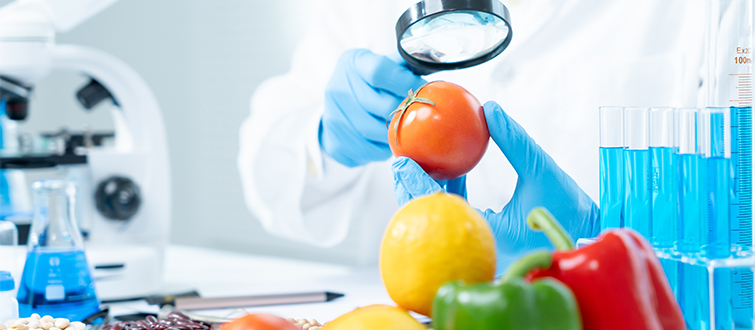Watch us in portrait mode to discover what makes us different.

India is not just evolving through technological advancements and robust infrastructure but is also seeing a significant shift in food innovation, thanks to influencers like Revant Himatsingka, popularly known on Instagram as the Food Pharmer. Revant Himatsingka has been at the forefront of the food revolution in India, championing the movement #LabelPadhegaIndia with a focus on educating the public about the nutrients, health and real benefits of natural and organic food. His achievements in promoting organic food, less harmful packaged food and a healthy lifestyle have inspired a new generation to rethink how we produce and consume food.
Food Pharmer’s work emphasizes the importance of keeping food as natural and organic as possible, which aligns perfectly with the principles of food biotechnology. The food biotechnology industry is experiencing rapid growth due to the new demand for healthier and more sustainable food options. Innovations such as biodegradable packaging, enzyme technology for food preservation, and genetically edited crops that yield more with less impact on the environment are paving the way for a revolution in the food industry.
Let us explore how food biotechnology is transforming the food sector and how you, too, can be a part of this change.
What is Food Biotechnology?
Food biotechnology involves using living organisms or their components to make food safer, more nutritious, and tastier. This field uses techniques like genetic engineering, fermentation, and molecular biology to change plants, animals, and microorganisms. These changes aspire to improve the quality and quantity of food we have, helping to meet the needs of people worldwide.
Recent New Innovations Changing the Game in the Food Industry
– Functional Foods: Biotechnology has led to the development of functional foods that provide health benefits beyond basic nutrition. For example, some foods are now enriched with probiotics to aid digestion or fortified with essential vitamins and minerals to combat nutritional deficiencies.
– Genetically Modified Crops (GM): Genetically modified crops continue to spark debate, but their contribution to food security and environmental sustainability is significant. These crops are engineered to resist pests and diseases, withstand harsh climates, and reduce the need for chemical pesticides, thereby enhancing yield and reducing environmental damage.
– New Methods of Preservation: Biotechnology has revolutionized food preservation by introducing natural methods that extend the shelf life of food products. Techniques involving enzymes and beneficial microorganisms eliminate the need for artificial preservatives. This is one the best innovations that will directly affect the quality of packaged food and make it less harmful, which was the first agenda of Revant Himatsingka, aka #FoodPharmer. He even promotes a few brands on his Instagram channel that sell packaged food but with the best nutrition without using any artificial preservatives and less sugar, which will positively affect the health of India.
– Alternative Food Production: As the global population grows and environmental concerns rise, biotechnology is also exploring sustainable alternatives to traditional food sources. Innovations like lab-grown meat and plant-based substitutes are gaining ground, offering more sustainable options compared to conventional meat production. These alternatives reduce the ecological footprint of food production and provide new solutions to meet the world’s dietary needs.
How To Become A Food Biotechnologist
To start a career in food biotechnology, you can pursue a specialization or professional elective under a B. Tech Biotechnology program. At NIIT University, we offer Food Biotechnology as a specialization, covering all essential aspects to prepare you for the industry. Our B. Tech Biotechnology program with Food Biotechnology specialization includes comprehensive subjects such as:
This complete curriculum equips you with the knowledge and skills needed to innovate and excel in the dynamic field of food biotechnology.
Conclusion: The Future of Food Biotechnology
By adopting innovative methods to enhance food preservation and safety without relying on artificial preservatives, we are stepping into a new era of food sustainability and healthy living. As technology advances, biotechnology is becoming increasingly essential in transforming the food industry. This field enhances food safety, improves quality, and offers innovative solutions to meet global food challenges, potentially benefiting millions worldwide.
Pursuing a career in food biotechnology means contributing to a significant shift toward sustainable living. With the appropriate education and a drive for innovation, you can lead this movement, helping India excel and influence global food practices.
Even if you choose a different career path, consider the food revolution a critical initiative for India’s progress. Embrace the changes and support sustainable practices in whatever way you can.